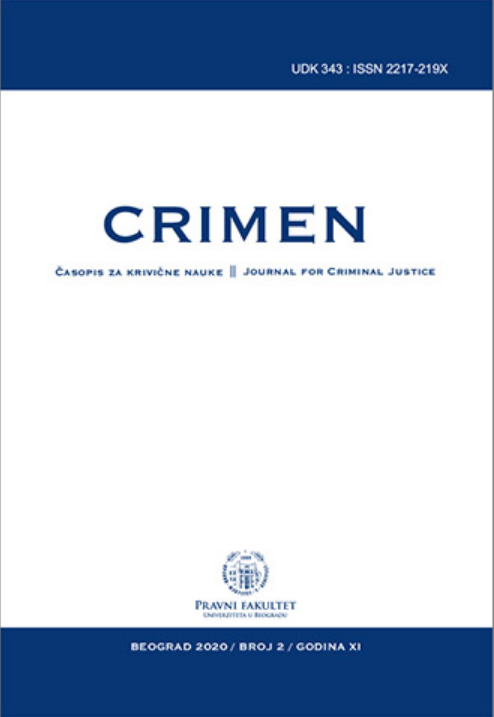ORGANIZOVANI KRIMINALITET I NARKOTICI
ORGANIZED CRIME AND NARCOTICS
INTRODUCTORY CLARIFICATIONS
Author(s): Đorđe M. IgnjatovićSubject(s): Social Sciences, Criminology, Substance abuse and addiction
Published by: Правни факултет Универзитета у Београду
Keywords: drugs; narcotic addiction; criminal behavior; crime; organized crime
Summary/Abstract: Article is the first step in explaining complex relation between drugs and organized crime. Firstly, in order to better understand those relations, there are definitions of organized crime (type of property crime, determined by the existence of criminal organization which runs a permanent illegal business with the intention of maximizing profit, using violence to establish a monopoly over certain territory and the corruption of authority representatives) and drugs (illicit psychoactive substances – PAS – that affect addiction or changes in consumer consciousness). After that, author present their classifications and put an accent on “the new drugs“ – club drugs and designer drugs. Before processing to the other considerations, he emphasize the distinctions among “drug-related crime“ and “drug-addict crime“ (crimes done by drugabusing offenders). Special attention is directed at the considerations of scientific research about influence of drugs on human behavior, especially on criminal conduct. It was concluded that between these phenomena there is a correlation, but not causality, which means that drug-abusing does not presume a crime. The importance of this assertion lies in the fact that media, general public, and even legislators often have completely opposite opinion on this problem. This is the reason why, on the one hand, citizens of various countries think that drugrelated crime means criminal activity, and on the other hand, political decision makers are constantly making criminal reaction too harsh not only towards wrongdoers who puts drugs into circulation (“dealing“) only, but for drug-abusers, too. Unfortunately, the same thing has happened to Serbia which made criminal reaction quite severe in the area of drug-related crimes for many times in the last decade. Subjects who present considerable data about number of persons who are arrested or been serving a sentence in penitentiary institutions for drug-crimes should explain a few things. Firstly, they should account how many of them are deprived because they have been engaged in producing or selling substances that are declared narcotics. Secondly, they should clarify how many prisoners abused drugs before deprivation and how many during a sentence serving. Criminologists had an important assignment to persuade public and legislators that the most of actual beliefs about criminal reaction on drug-related crime are not based on scientific opinions. The biggest mistake is thinking that drug-abusing only leads to crime. In the environment where criminologists had major influence on the public and politicians, an apparent trend of reduction of criminal reaction or even decriminalization of some conducts in the area of drug-related crime has been noticed. They are treating narcotic addiction as medical, not criminal problem.
Journal: CRIMEN - časopis za krivične nauke
- Issue Year: XI/2020
- Issue No: 3
- Page Range: 235-254
- Page Count: 20
- Language: Serbian

